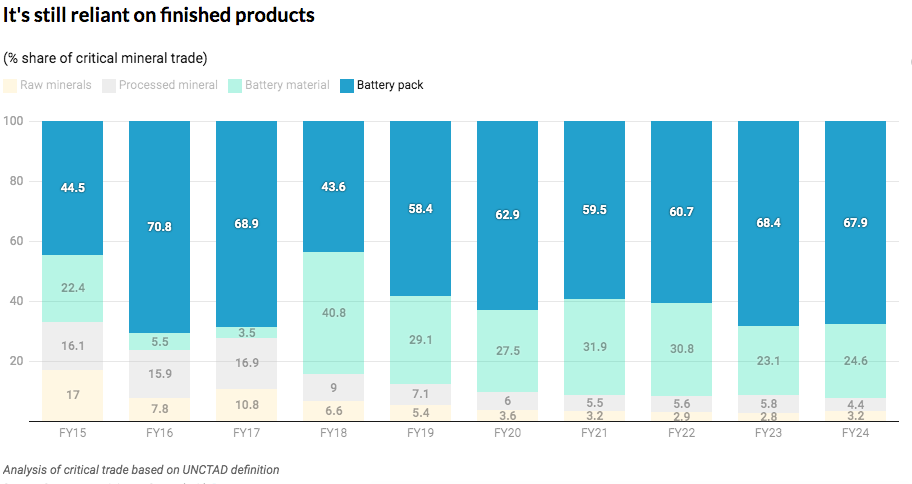Short : India’s critical mineral trade has expanded 10x over the past decade, fueled by the rising demand for key minerals like lithium, cobalt, and rare earth elements. These resources are crucial for manufacturing electric vehicles, renewable energy technologies, and high-tech products, supporting India’s economic growth.
Detail : China leads in these technologies, accounting for a 72.8 percent share in India’s imports of battery packs in FY24, up from 56.3 percent in FY20.India’s critical mineral imports have increased over tenfold in ten years from $475 million in FY15 to $4.93 billion in FY24, according to analysis of commerce ministry data.
This increase in trade has come with an increased reliance on finished products and China.It is not surprising that India is signing critical mineral agreements and securing supply chains to deleverage its dependence on Chinese imports.
Battery packs, including lithium-ion batteries, accounted for 68 percent of the country’s total critical mineral imports in FY24, up from 44.5 percent in FY15.China leads in these technologies, accounting for a 72.8 percent share in India’s imports of battery packs in FY24, up from 56.3 percent in FY20.
But China’s dominance in India’s critical mineral imports is not just limited to battery packs. It accounted for 56.3 percent share in India’s total critical mineral imports.It accounted for a 39.1 percent share of India’s imports of processed minerals, up from 31.5 percent prior to the pandemic and 30.5 percent of raw mineral imports, up from 25.6 percent in FY20.
Lithium was India’s top import, accounting for $1.3 billion, followed by graphite, $229 million, and cobalt, $78 million.
India’s critical mineral trade has increased 10x in 10 years







